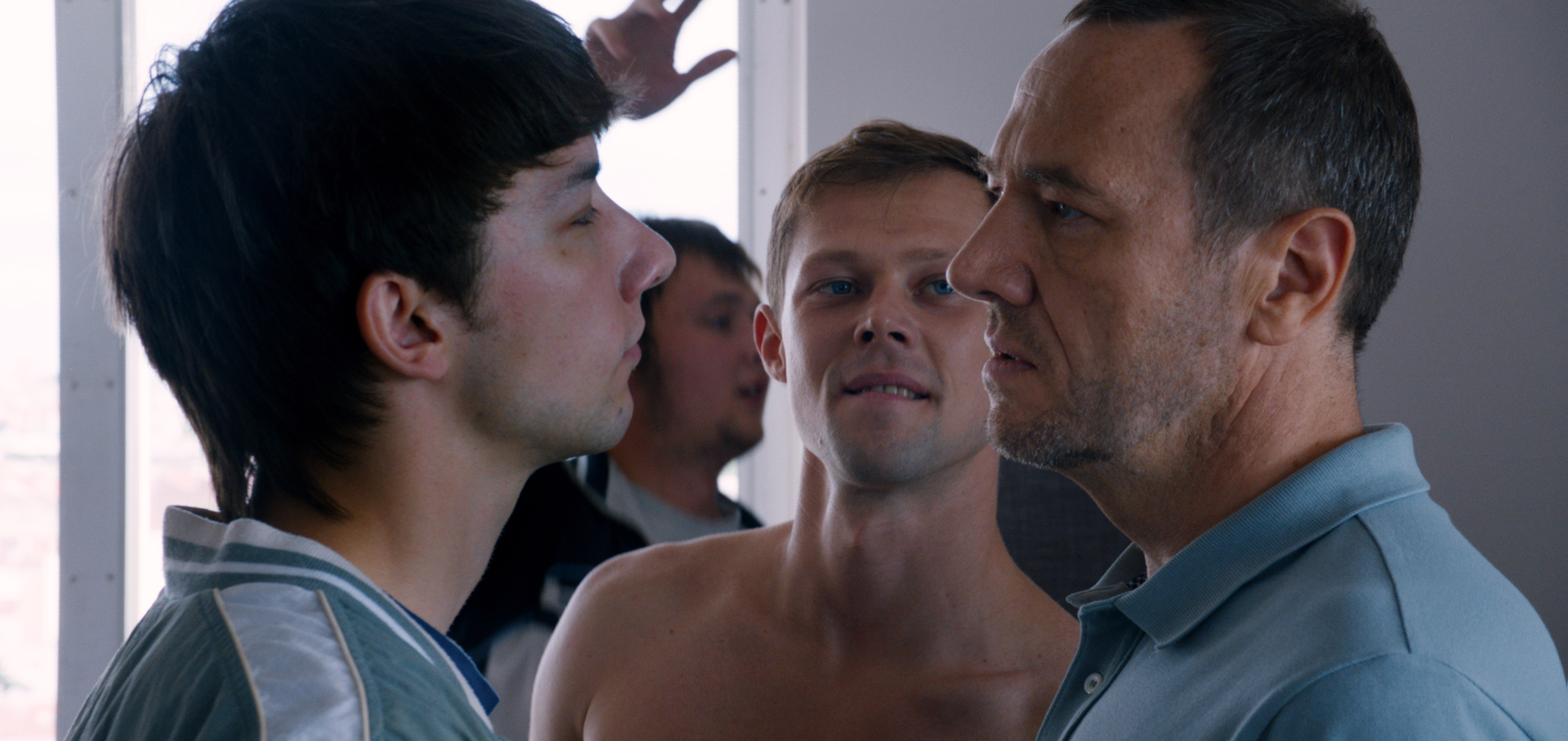
Eastern Boys is a film about what is left unsaid on screen. It uses the sparseness of dialogue to great effect. As the audience, we are provided with the bare minimum of English subtitles. Most of the action that unfolds on screen is left for us to decipher for ourselves. This conscious cinematic choice is the most striking feature of the film. For the most part, this appears to be a masterstroke, as it lifts the film’s slow and progressive narrative to a point where you are thoroughly engaged with the film – trying to decipher the hidden meanings and messages in the film.
The plot unravels around a group of young immigrants residing in France – from various Slavic communities and some (possibly) from the Middle East – who are controlled by their leader, who is just referred to as “Boss”. One of the boys, Marek, is solicited by a considerably older man named Daniel. What happens as a result of this solicitation forms the crux of the narrative.
The film is divided into four distinct parts. Each part follows a ‘mini-narrative’ that falls somewhere in between a vignette and an extended anecdote. Whilst the first three parts do tie in nicely when you consider the tone, pace and thematic intentionality of the film, the final, rather extended climactic part is quite jarring. The final part of the films runs for about 40 minutes and is completely different from the rest of the film’s integrity. It’s here that the film becomes something akin to Taken and you expect Liam Neeson to make a well-intended cameo appearance any second. This is not to say that the climax wasn’t good or didn’t work. My point is concerning the thematic intentionality of the project. It felt as if I had witnessed two very different films unfold on screen one after the other, rather than one cohesive piece of work.
However, despite issues with the screenplay, the film scores with a rather understated treatment of a delicate subject matter. The film revolves around the relationship between a significantly older man and a significantly younger man; a relationship that begins with the promise of a business transaction but evolves organically into a caring and loving emotional bond.
Director Robin Campillo must be lauded for normalising relationships, which conservatively, might not conform to the status quo. The beauty of the treatment lies in the fact that throughout the film, the relationship between these two individuals is never explained, or worse, justified for the audience. The relationship is never reduced to the facsimile of an irrevocably prodigious punchline. Campillo doesn’t intend to make a political statement about the status of LGBTQ relationships or comfort the conservative mindset of those who might be in the audience. No, that would be disingenuous. Reducing any relationship to a rationalisation or a justification discards the humanity that encompasses the individuals in that very relationship. Human relationships aren’t meant to be reduced to a political statement. Humanity, despite its critics, shouldn’t be seen as a subtitle that explains our actions to the rest of the world, filled with people who don’t speak the same language.
In choosing to preserve the humanity of relationships, Campillo makes an even stronger statement. He views humanity as a status quo, far above race, gender, sexuality or age. This makes a powerful impact, as the message resonates with the audience irrespective of their lifestyle or political inclinations. Campillo chooses to focus on the common thread that binds us and makes us human: relationships; rather than get lost in the specificity of our choices that divide us.
Jeanne Lapoirie’s cinematography is brilliant, enhancing the aesthetic and understated tone of the film in its first three parts. The way the intimate scenes between Daniel and Marek are shot also emphasise the bliss of being in a relationship and its troughs and peaks as opposed to the wretched vulgarity of the immediate sexual act.
The subtitles are present only when absolutely necessary. Initially, that may appear to be a hindrance, but for me, it enhanced the experience of engaging with the film. The narrative is quite cleverly put together in the sense that it relies extensively on visual cues that unfold on screen as opposed to dialogue. It was a welcome experience to truly ‘watch’ a film in a language (French) that I’m not terribly fluent in, but still having no trouble in being engaged with the narrative. The visual cues allow audience to almost ‘create’ meaning from a set of visual scenes, as opposed to the narrative meaning being conveyed in a conventionally singular sense. There is an extended surreal ‘dance’ sequence that unfolds at Daniel’s house that consists almost completely of visual cues and it is one of the highlights of the film.
Olivier Rabourdin gives a wonderfully expressive but understated performance as Daniel and he is matched on screen by Kirill Emelyanov, who plays the young boy Marek. The understated performance of the two unconventional leads is in contrast to the intentionally boisterous Danil Vorobyev, playing the role of ‘Boss’ the leader of the boys’ gang.
Hence, despite prevalent issues with its screenplay, Eastern Boys sets itself apart due to the unconventional but effective execution of the narrative, complemented by sublime cinematography and top notch performances. Campillo’s implicit message about valuing the humanity of relationships is one that resonates quite strongly.
